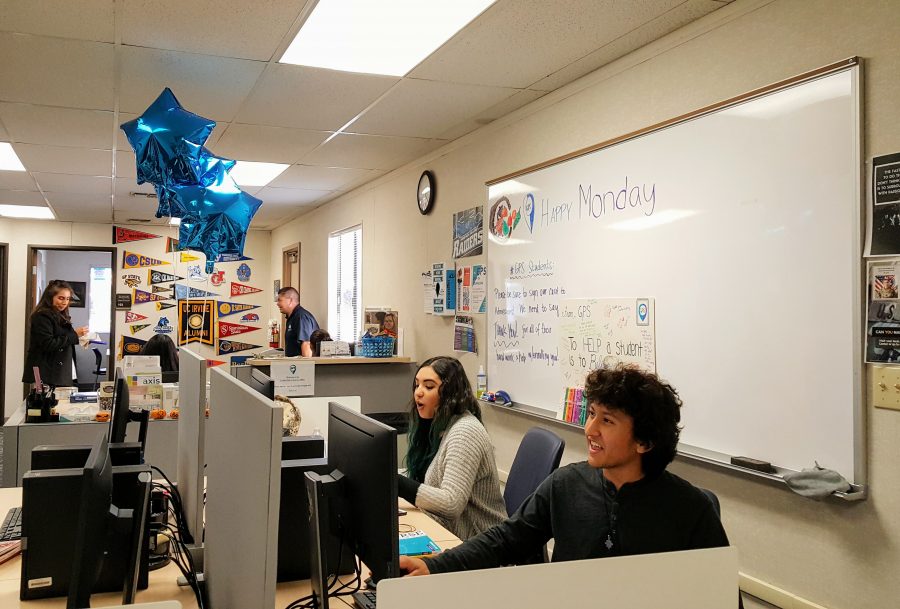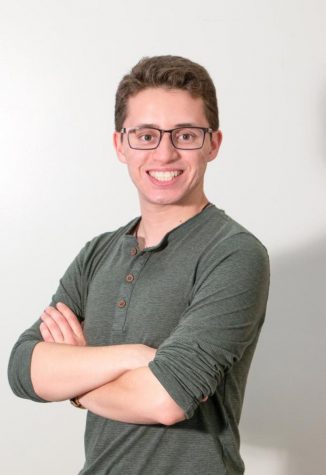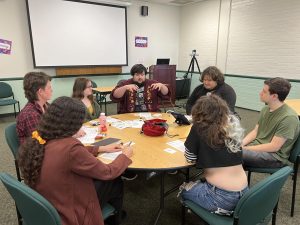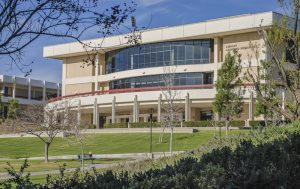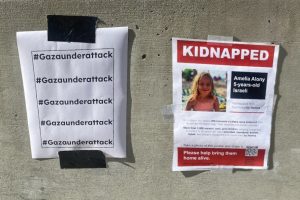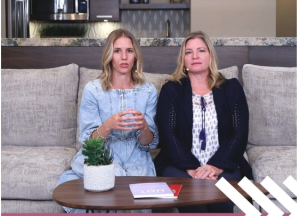New GPS Program eases transition for incoming students.
Students Maya Lara and Joshua Vincent work at the computer station in the Student Success Center. In the background, Student Success Supervisor Dr. Jesus Vega and Student Success Coach Joanna Moreno talk. Photo credit: Martin Bilbao
January 10, 2017
It’s easy to miss from the quad but just to the left of the Bookstore lies the Student Success Center. Though an unassuming temporary building, the site holds student success counselors, coaches, and resources for first-year students. It is also the headquarters for the new Guided Path to Success or GPS program on campus.
“The fact that I can come to the student success coaches, come to the GPS center, and know that there is someone here who genuinely cares to see me succeed and wants to help me out on that journey to get there is really great,” said Joshua Vincent, a first-year student.
This is the pilot year for GPS, a program with the main goal of facilitating the transition for students entering their first year of college. That involves offering an environment where students can study, socialize, and take advantage of the many resources and incentives the program offers including priority registration.
With only about 150 students enrolled in the program so far, the program is still in its infancy, but has plans to double its size to include 300 students by the fall semester next year, according to Howard Davis, the Dean of Student Success.
As part of the program, students must register before the start of their first year and complete several requirements. Students must be enrolled in at least 12 units and complete math and English requirements as well as take a college strategies course within the first year. They must meet with one of two counselors at the student success center at least once a semester to create a comprehensive education plan, said Pam Kennedy Luna, Student Success counselor.
In addition to that however, they are assigned to a student success coach. There are five coaches and each has a cohort of about 30 students who they keep up with regularly to make sure they are on track with their grades, schedule, and registration process.
“We really try to be the connector to the campus as well as the person that they feel that they can come in and talk to whenever they need or if they have any questions,” said Joanna Moreno, Student Success Coach. “We are always open to answer anything.”
The space in the Student Success Center is small, especially for a program with 150 students and plans for growth, but it offers easy access to counselors, coaches, and computers where students can study and get to know each other.
“I believe a lot of GPS students feel this is a home away from home,” said Luna. “A lot of students that are here right now are not waiting for appointments or to see their coach. They are here because they know they can come to use the computers and hang out.”
To make sure first-year students fit in at Moorpark, they are encouraged to explore the many offices and services the campus offers. To facilitate that students are sent weekly emails about events and functions on campus, Moreno said. A part of this is also the GPS Passport, another requirement where students must attend and sign off that they have visited the Job and Career Center, the Health Center, the Learning Center, and so forth.
“We have a space for them but we don’t want them here all the time. We want them to be able to explore and feel comfortable in other places as well,” said Dr. Jesus Vega, Student Success Supervisor and GPS Coordinator.
The GPS Center has been in the works for at least three years as an item of interest for the Student Success Division. Davis, the current Dean of Student Success joined the project back in January. Research was done on the best practices for first-year programs at other community colleges, Cal State Universities, and even UC Universities. Over the spring semester, work groups were formed with professors and faculty to iron out the details and requirements of the program, Davis said.
“It’s a program of abundant support, Davis said. “All the research over a couple decades with regard to first year success in college, we’ve really integrated those into our program.”
Looking forward, workshops are being devised for GPS students. These include a mental health and anxieties workshop, online registration, time management, study skills, note taking, resume writing, and interview skills. These workshops however will not be restricted to GPS Students. According to Vega, many of the resources and services GPS offers are being opened to the general population.
“We are reaching out to the general population,” Moreno said. “Currently we are working on helping those students who are coming on in the spring as new students. We also have gone out into the campus and done classroom presentations to raise awareness of who we are and what we can offer to students.”
With the program planning to double in size, recruitment is starting early for next year. Already plans are being made to table at high schools and contact incoming students. Current GPS students are even encouraging their counterparts in their high schools to enroll.
“It definitely cleared my head and focus on what classes I need to take, Vincente said. “It’s helping me figure out what I need to do to get ahead for future classes. If didn’t have this program to help me to where I am now, I wouldn’t be here.”



